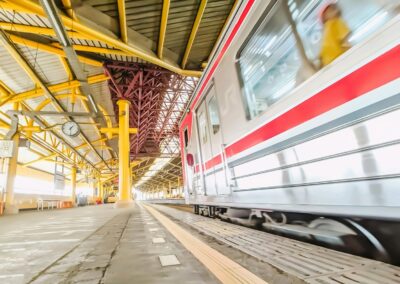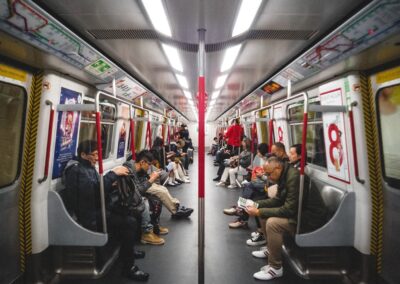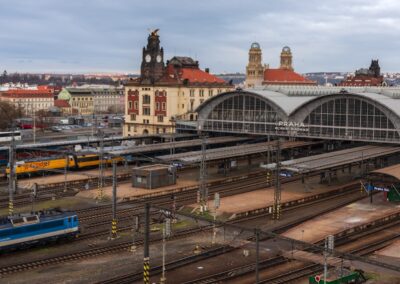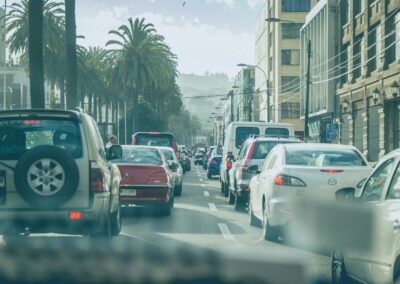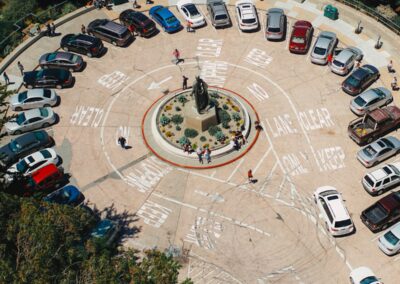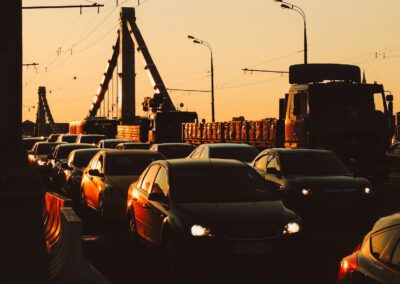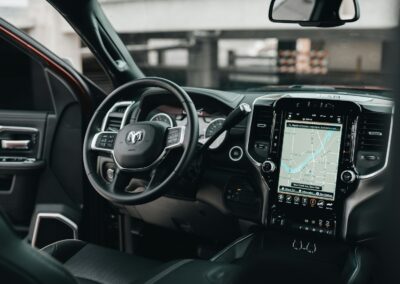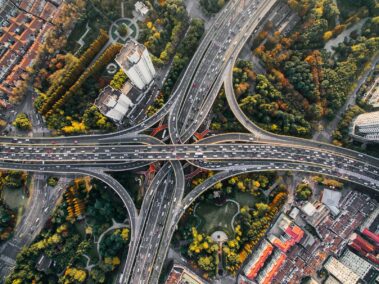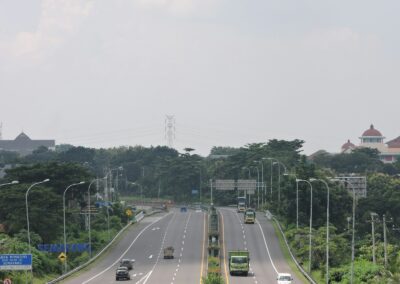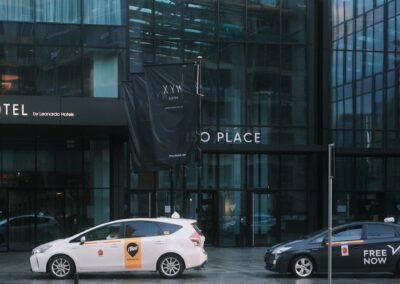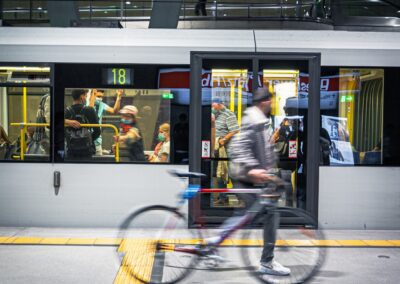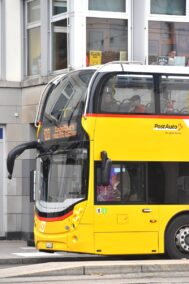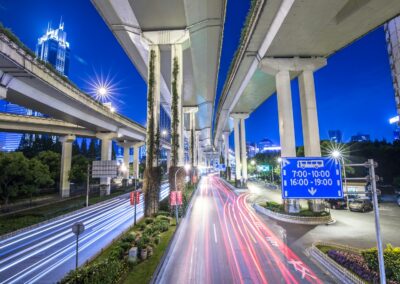The Role of Smart Transportation in Urban Mobility
Transforming Urban Mobility with Smart Transportation Systems
The development of smart transportation systems is revolutionizing urban mobility and significantly reducing traffic congestion in smart cities, especially in rapidly developing regions like Saudi Arabia and the UAE. Cities such as Riyadh and Dubai are at the forefront of adopting advanced technologies like Artificial Intelligence (AI), the Internet of Things (IoT), and data analytics to create efficient, reliable, and sustainable transportation networks. These systems enhance the overall travel experience by optimizing traffic flow, improving public transportation, and reducing travel time.
AI-powered traffic management systems analyze real-time data from various sources, including traffic cameras, GPS devices, and social media, to monitor traffic conditions and predict congestion. In Riyadh, AI algorithms are used to adjust traffic signal timings dynamically, ensuring smoother traffic flow and reducing waiting times at intersections. Similarly, in Dubai, smart traffic lights and sensors help to manage vehicle movement more effectively, minimizing bottlenecks and enhancing road safety.
Moreover, the integration of IoT devices in smart transportation systems enables seamless communication between vehicles, infrastructure, and central control systems. This interconnected network allows for real-time updates on traffic conditions, road closures, and public transportation schedules, providing commuters with accurate information to plan their journeys. By leveraging these advanced technologies, smart cities can create more efficient and responsive transportation systems, improving mobility and reducing congestion.
Enhancing Public Transportation and Commuter Experience
Smart transportation systems also play a crucial role in enhancing public transportation services and the overall commuter experience. For business executives, mid-level managers, and entrepreneurs in Saudi Arabia and the UAE, efficient public transportation is essential for minimizing travel time and improving productivity. Smart city initiatives in Riyadh and Dubai are focusing on modernizing public transit systems through the use of AI and data analytics, making them more reliable, convenient, and user-friendly.
AI-driven predictive analytics help public transportation authorities anticipate demand and optimize routes and schedules accordingly. In Dubai, for example, AI is used to analyze passenger data and predict peak travel times, allowing for better allocation of buses and trains to meet demand. This reduces overcrowding and ensures that public transportation is available when and where it is needed most. Additionally, real-time tracking and mobile applications provide commuters with up-to-date information on arrival times and service disruptions, enhancing the overall travel experience.
Blockchain technology further enhances the efficiency and transparency of public transportation systems. By providing a secure and tamper-proof platform for ticketing and payment transactions, blockchain ensures that all transactions are accurately recorded and easily verifiable. This not only reduces fraud and enhances trust but also streamlines the payment process, making it more convenient for commuters. As a result, smart cities can offer more efficient and reliable public transportation services, encouraging greater use of public transit and reducing reliance on private vehicles.
Supporting Sustainable Urban Development
The development of smart transportation systems is essential for supporting sustainable urban development in smart cities. As cities like Riyadh and Dubai continue to grow and urbanize, the demand for efficient and sustainable transportation solutions will only increase. By adopting smart transportation technologies, these cities can reduce their environmental footprint, enhance mobility, and improve the quality of life for their residents.
Generative AI and advanced data analytics can further enhance urban planning and development. These technologies enable city planners to create detailed simulations and models, predicting the impact of new developments on traffic and transportation infrastructure. This proactive approach ensures that new projects are designed with sustainability in mind, minimizing their impact on traffic congestion and promoting efficient mobility.
Moreover, the integration of smart transportation systems aligns with the broader vision of sustainability outlined in initiatives like Saudi Vision 2030 and the UAE’s National Agenda. These strategic plans emphasize the importance of environmental stewardship and the role of technology in achieving sustainable development goals. By investing in smart transportation solutions, Saudi Arabia and the UAE are demonstrating their commitment to creating sustainable, livable cities for future generations.
In conclusion, the benefits of developing smart transportation systems in smart cities are manifold. These systems optimize traffic flow, enhance public transportation, reduce congestion, and support sustainable urban development. As cities like Riyadh and Dubai continue to innovate and grow, the adoption of smart transportation technologies will be crucial for ensuring efficient mobility and a higher quality of life for their residents.
#SmartCities #SmartTransportation #Mobility #TrafficCongestion #AI #Blockchain #Dubai #Riyadh #UAE #SaudiArabia



